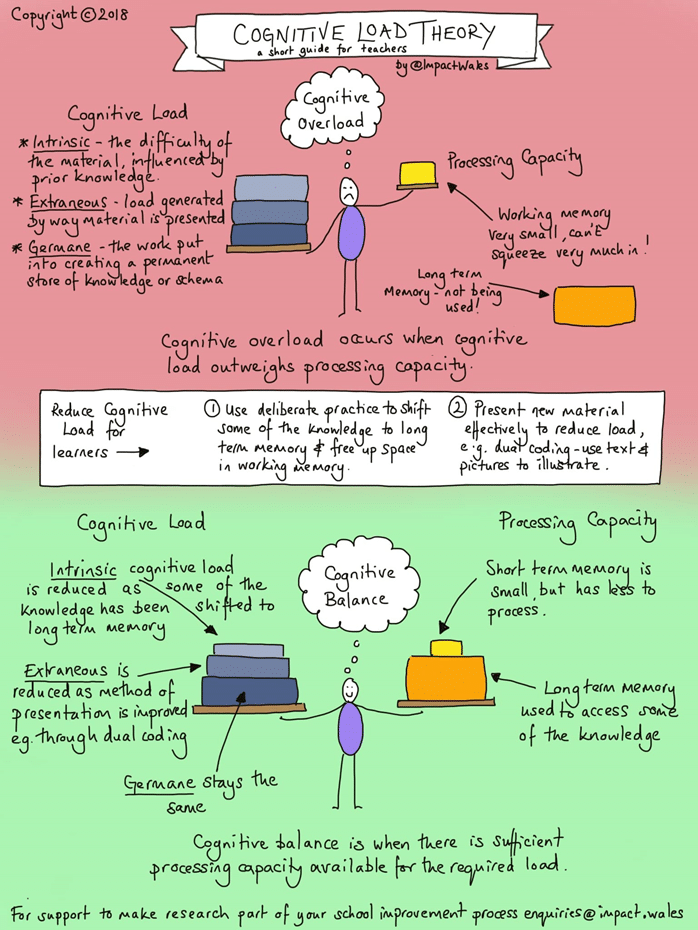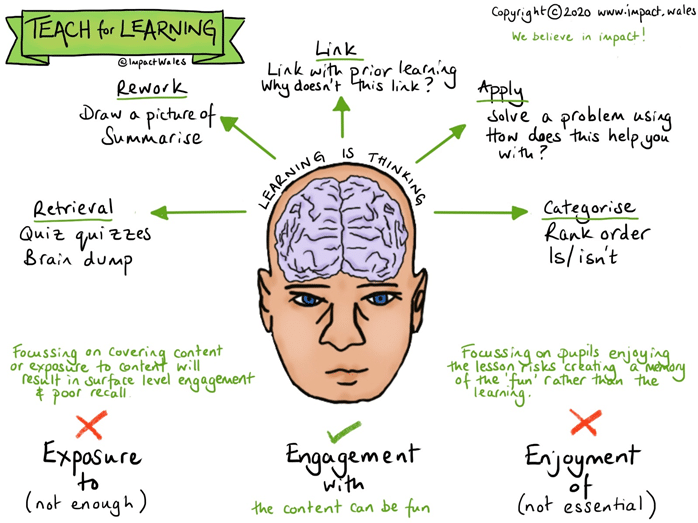At GCSEPod we are always looking for way to immerse ourselves in the latest learning techniques and research in education. Here we welcome Jane & Fin, aka Impact Wales to tell us why research matters…
Why research matters
In recent years there has been a growth in educators becoming research-informed. Schools are doing it, teachers are being provided with professional learning that does it and school improvement plans are expected to demonstrate it, but why is it so important?
Let’s take medicine as an example. If we put our health in the hands of a doctor or a hospital, we want to know that the treatment that we receive is going to do us some good, that it’s going to work. Education should be exactly the same.
If we are entrusting our children to teachers and schools, we want to know that what they are being taught is going to make them better prepared for adulthood and lifelong learning. This is what is driving the recent focus on education research and what is particularly interesting is that the research that is at the forefront of this efficacy revolution in our classrooms, is in some cases research that has been around for quite some time. Research that tells us about how the human memory works, how learning actually happens and what are the best bets in terms of supporting that learning to happen. Research from cognitive science.

Here, at Impact Wales, we provide professional learning for teachers that focuses on just such research. We help schools and teachers to translate research into effective practice in the classroom. And now, we are also working with GCSEPod to refine their resources to reflect how the learning actually happens.
Let us give you an example of what we mean. In the late 1980s, John Sweller developed a theory about the demands placed on the human memory when we are learning something new. This he named Cognitive Load Theory. Dylan Wiliam subsequently commented that it was the ‘single most important thing that teachers should know’. The theory details three different types of cognitive load, one of which is ‘extraneous load’, that is how the learning is presented to the learner. Sweller suggested that there are ways of reducing the extraneous load, thereby increasing the likelihood of the learning being assimilated by the learner. Strategies such as reducing redundant text on a power point or using worked examples to aid learning, are now increasingly being used by teachers, and have themselves attracted further research into their efficacy. The work we have done with GCSEPod has looked at this type of suggestion along with other research such as Mayer’s Principles of Multimedia Learning that also links with the research from cognitive science on how the human memory operates.
We work with schools across the UK on improving the quality of their teaching and learning and it is these research-informed strategies and approaches that are at the core of our professional learning offer. We also provide a digital professional learning platform for teachers and schools, where they can access all of our research-informed sketchnotes, professional learning packs and films.
If you would like to find out more about what we do, or how we could help your school to improve, just drop us a line to enquiries@impact.wales or go to our website www.impact.wales

Impact Wales provide bespoke support and create user-friendly curriculum resources that allow teachers to take control of their own learning and have direct impact on standards.

JANE MILLER
Jane has 25+ years’ experience as a teacher and senior leader, as well as extensive experience of developing and embedding new teaching and learning strategies.
Jane is a Numeracy specialist and has more than 15 years’ experience as a Head of Mathematics and Assistant Head in charge of data and assessment, mentoring curriculum leaders in the analysis and use of data to improve standards. She is also Deputy Project Lead for NFER for the national Numerical Reasoning tests and has developed support materials for and delivered the marking events for teachers and advisory staff across Wales.
In her role as an NSP Partner for CfBT Education Trust, Jane was the strategic lead for developing numeracy and numerical reasoning across the curriculum.
Jane has created and delivered a range of bespoke numeracy and assessment training workshops for schools across South Wales in both the primary and secondary sectors and has worked with senior leadership teams to ensure that literacy and numeracy is strategically and effectively embedded.

Finola Wilson
Finola has a unique skill set and is highly unusual in having taught both English and Maths in KS3 and KS4. Finola has over a decade’s experience as a Language and Literacy specialist and has taught English from KS2 to KS5, specialising in A Level English Language and Linguistics.
Finola is an expert in coaching and mentoring having studied Psycho- Linguistics and Transactional Analysis and spending several years training coaches for UK Athletics.
In her role as Senior NSP Partner for CfBT Education Trust Finola was the strategic lead for Assessment, Recording and Reporting across Wales and has worked with numerous schools to develop and enhance assessment skills.
Finola is also an experienced project manager in both the private and public sectors working with NGOs and community groups across South Wales.
More from our blog
We have a wide range of articles, case studies and news features in our blog.
If you would like to see more please click on the button below.
Can we help your school deliver high quality online learning?
Join over 1,500 schools in over 42 countries today to make sure their learning does not stop.
“I can’t speak highly enough about how helpful the GCSEPod team were throughout the whole process. Most importantly, teachers and students have found the resources relevant, excellent, and easy to use.”
Ian Lee, Yew Chung International School of Shanghai, China




